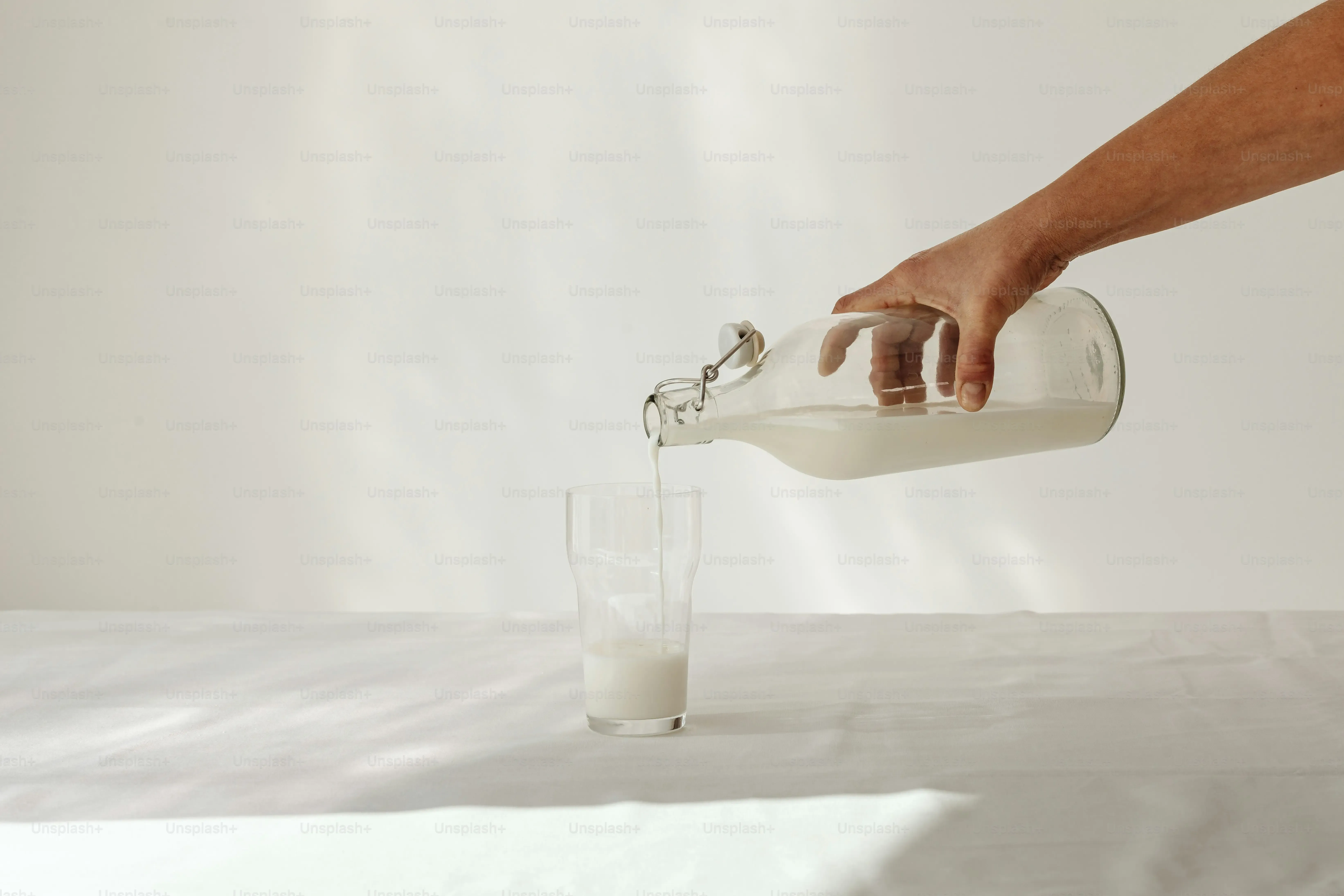Table of Contents
Feeling a bit... stuck? You're not alone. Digestive woes are common, and often, we look right to our plates (or glasses) for answers. Dairy frequently lands in the hot seat when constipation strikes, but the connection isn't always clear-cut. Specifically, many wonder, does low fat milk cause constipation? It's a question that pops up surprisingly often, especially when you're trying to make healthier choices or manage existing gut issues.
Does Low Fat Milk Cause Constipation? Separating Fact from Fiction

Does Low Fat Milk Cause Constipation? Separating Fact from Fiction
The Gut Feeling vs. The Science
So, you're diving into the murky waters of diet and digestion, eh? Welcome to the club. One question that keeps popping up, often whispered with a furrowed brow, is "does low fat milk cause constipation?". It feels intuitive for some. Dairy, in general, gets blamed for all sorts of digestive slowdowns. You cut the fat, thinking it's healthier, and suddenly things grind to a halt. Coincidence? Maybe. Or maybe not. The truth is, our gut reactions (pun intended) don't always line up with what's actually happening inside.
For years, full-fat dairy was the primary suspect for many digestive woes, including constipation, due to its higher fat content potentially slowing down digestion. Then came the low-fat craze, and suddenly, people started noticing issues with skim or 1% milk too. It's enough to make you want to give up milk entirely. But before you pour that carton down the drain, let's pump the brakes and look at what the actual evidence says, rather than just relying on anecdotal evidence from your Aunt Carol's bridge club.
Why the Dairy Doubt?
- Myth: All dairy constipates everyone.
- Fact: Individual responses vary wildly.
- Myth: Low-fat milk is worse for constipation than whole milk.
- Fact: Research suggests the opposite might be true for some.
- Myth: Lactose intolerance is the same as dairy-induced constipation.
- Fact: Lactose intolerance causes gas, bloating, and diarrhea, not typically constipation.
Why is dairy, and specifically low-fat milk, even on the suspect list for causing constipation? A big part of it comes down to lactose, the sugar in milk. While lactose intolerance usually manifests as diarrhea, gas, and bloating because the body can't break it down properly, some people report feeling "backed up" after consuming dairy, even without classic intolerance symptoms. Then there's the protein casein, another component of milk, which some individuals find hard to digest and has been linked to slower transit times in the gut for a subset of the population.
The leap to low-fat milk causing constipation might stem from the general association of dairy with digestive trouble. When you remove fat, you concentrate the other components like lactose and protein relative to the fat content. The logic, flawed as it might be, goes something like: if dairy is bad, and this is dairy, it must be bad too, perhaps in a different way. People also tend to change multiple things in their diet simultaneously, making it tough to pinpoint the real culprit when constipation hits.
The Surprising Twist in the Tale
Here's where it gets interesting, and perhaps counter-intuitive. While common wisdom might point a finger at low-fat milk causing constipation, some studies have explored the *opposite* idea. Believe it or not, there's research out there investigating fat-free milk as a potential *therapeutic* approach for constipation in certain individuals. Yes, you read that right. Instead of causing the problem, it might actually help solve it for some people by influencing gut motility hormones like motilin. It challenges the simple narrative that dairy equals digestive blockage.
Milk Type | Common Digestive Effect (General) | Potential Link to Constipation (Individual) |
|---|---|---|
Whole Milk | Slower digestion (due to fat) | Possible for sensitive individuals |
Low-Fat/Skim Milk | Faster digestion (less fat) | Less likely to cause constipation based on some research; may even help some |
Lactose-Free Milk | Easier digestion (lactose removed) | Reduces lactose intolerance symptoms, not typically constipation |
This doesn't mean everyone should start chugging skim milk to cure their constipation. Far from it. But it does highlight that the relationship between dairy, its fat content, and your gut is complex and highly individual. Simply stating "does low fat milk cause constipation?" and expecting a universal 'yes' or 'no' is missing the nuance. It's less about the milk itself for many, and more about how *your* specific digestive system handles its components, and what else is going on in your diet and lifestyle.
Why Dairy Gets a Bad Rap: Lactose and Fat Factors

Why Dairy Gets a Bad Rap: Lactose and Fat Factors
The Usual Suspects: Lactose and Casein
Alright, let's talk about why dairy often ends up in the digestive penalty box. It's not just random bad luck. There are a couple of key components in milk that can cause trouble for some people. The main one is lactose, that milk sugar we talked about. A huge chunk of the world's population has some degree of lactose intolerance. Their bodies don't make enough lactase, the enzyme needed to break lactose down. When undigested lactose reaches the large intestine, bacteria have a field day, producing gas and pulling water into the bowel. This usually results in bloating, pain, and, most commonly, diarrhea, not constipation. So, if you're blaming lactose for constipation, you might be barking up the wrong tree.
Then there's casein. This is the main protein in milk. Some folks find casein hard to digest. It can form a dense curd in the stomach, potentially slowing down the passage of food through the digestive tract for certain individuals. Think of it like trying to push a lumpy, sticky substance through a tube – it's just not as smooth as something more liquid or easily broken down. While not as widely discussed as lactose intolerance, sensitivity to casein is another reason dairy can cause digestive discomfort or slower transit times for a specific subset of people.
Fat's Role in the Digestive Journey
- Lactose Intolerance Symptoms: Gas, bloating, abdominal pain, diarrhea (most common).
- Casein Sensitivity Symptoms: Bloating, gas, discomfort, potential slower transit.
- Constipation Symptoms (General): Infrequent bowel movements, hard or lumpy stools, straining, feeling of incomplete evacuation.
Now, let's get to the fat. Fat, in general, slows down digestion. Your body takes longer to process fats compared to carbohydrates or proteins. This is one reason a greasy burger sits in your stomach longer than a piece of fruit. With full-fat dairy, the higher amount of fat *can* contribute to slower gut motility for some people. It's not necessarily causing a blockage, but it can definitely hit the brakes on the whole operation. This is where the traditional idea that whole milk causes constipation comes from.
So, logically, you might think removing the fat speeds things up. And often, it does. Low-fat or skim milk moves through the digestive system faster than whole milk because there's less fat to process. This is part of the reason some studies are looking at fat-free milk as potentially helpful for constipation, as mentioned earlier. It bypasses the fat-induced slowdown. However, if your issue isn't fat digestion but sensitivity to lactose or casein, removing the fat doesn't solve the underlying problem with those components. It just means they might pass through slightly faster, potentially still causing issues, though perhaps different ones than constipation.
The FatFree Milk Paradox: Research Says What?

The FatFree Milk Paradox: Research Says What?
When Less Fat Might Mean Less Backed Up
so we've established that dairy isn't a simple "good" or "bad" guy for your gut. Lactose and casein are the usual suspects causing grief for many, often leading to diarrhea or general discomfort rather than constipation. But what about the low-fat stuff? This is where things get a little twisty. Remember that research I mentioned earlier? The one suggesting fat-free milk might actually *help* constipation?
It sounds crazy, right? Like saying spicy food cures heartburn. But the idea stems from the fact that fat slows things down. Remove the fat, and the liquid passes through the stomach and small intestine faster. Some studies, like the one published focusing on fat-free milk as a potential therapeutic approach for constipation, have explored whether this faster transit, combined with other factors, could actually improve gut motility in individuals with chronic constipation. They looked at how fat-free milk affects gut hormones like motilin, which plays a role in stimulating intestinal muscle contractions. The initial findings suggest a potential positive effect for *some* people. It's not a magic bullet, but it throws a wrench in the simple narrative that does low fat milk cause constipation.
- Potential Mechanism 1: Faster gastric emptying due to less fat.
- Potential Mechanism 2: Influence on gut motility hormones (like motilin).
- Potential Outcome: Improved transit time for *certain* individuals with constipation.
- Key Caveat: This is not a universal effect or a guaranteed cure.
Don't Swap Your Fiber for Skim Just Yet
Before you ditch your prunes and load up on skim milk expecting miracles, hold on. While the research on fat-free milk helping constipation is intriguing, it's not the whole story, and it certainly doesn't apply to everyone. Most studies looking into this are relatively small or focus on specific populations with chronic constipation. Your everyday, occasional constipation likely has more to do with bigger picture items: not enough fiber, not drinking enough water, lack of exercise, or ignoring nature's call.
The truth is, while the fat content of milk *can* influence transit time, it's often a minor player compared to the heavy hitters like dietary fiber intake. If you're eating a diet low in fruits, vegetables, and whole grains, adding or removing fat from your milk isn't going to fix the fundamental issue. Furthermore, if you have a sensitivity to lactose or casein, even fat-free milk can cause digestive distress, though it might manifest as gas or bloating rather than constipation. So, while the paradox of fat-free milk potentially aiding constipation is fascinating from a research perspective, it doesn't overturn the basic principles of digestive health.
Finding Relief: Beyond Milk and What Actually Helps Digestion

Finding Relief: Beyond Milk and What Actually Helps Digestion
Stop Blaming the Moo Juice: What's *Really* Slowing You Down?
Alright, enough about whether does low fat milk cause constipation. While dairy can be a piece of the puzzle for some folks, fixating solely on milk, low-fat or otherwise, often means missing the bigger picture. Most of the time, constipation isn't some mysterious ailment caused by a single food item you ate yesterday. It's usually a cumulative effect of daily habits and dietary choices that aren't supporting healthy gut function. Think of your digestive system like a conveyor belt; if you're not putting the right stuff on it or keeping the machinery well-oiled, things are going to back up, regardless of whether you had skim milk with your cereal.
The real culprits are far less glamorous than a dairy debate. We're talking about the foundational elements of a healthy digestive system that get ignored in our fast-paced lives. Dehydration, lack of dietary fiber, not moving your body enough, and even holding it when you feel the urge – these are the heavy hitters when it comes to constipation. They don't make for exciting headlines, but they are the nuts and bolts of keeping things moving. So, before you eye that milk carton with suspicion, let's look at the stuff that actually makes a consistent, measurable difference.
Fiber and Fluid: The Unsung Heroes of Gut Health
If you want to talk about things that *actually* prevent and relieve constipation, fiber and water should be at the top of your list. Fiber adds bulk to your stool, making it easier to pass. It acts like a broom, sweeping waste through your colon. Most of us aren't getting anywhere near enough. The average adult needs between 25 and 35 grams a day, and let's be honest, are you tracking that? Probably not. Loading up on fruits, vegetables, legumes, and whole grains is the most effective dietary strategy for preventing constipation, far more impactful than debating the merits of milk fat.
Water is the other non-negotiable. Fiber needs water to work effectively. Imagine that broom trying to sweep dry, compacted dirt – it's not going to move much. Add water, and things loosen up and flow. When you're dehydrated, your body pulls water from your stool, making it hard and difficult to pass. Coffee and tea count towards fluid intake, but plain old water is still the champion for hydration. Aim for plenty throughout the day, especially when you increase your fiber intake.
- Increase Fiber Intake: Aim for 25-35 grams daily from fruits, veggies, whole grains, and beans.
- Stay Hydrated: Drink plenty of water throughout the day.
- Listen to Your Body: Don't ignore the urge to go.
- Move Your Body: Regular physical activity helps stimulate gut muscles.
- Consider Probiotics: Found in yogurt (yes, dairy again, but the good kind!) or supplements, they can support a healthy gut microbiome.
Beyond Diet: Lifestyle Factors and When to Get Help
Diet is huge, but your lifestyle plays a massive role too. Stress, for example, can wreak havoc on your digestive system. When you're stressed, your body diverts resources away from "non-essential" functions like digestion. Regular physical activity is also key. Exercise helps stimulate the muscles in your gut, encouraging waste to move along. Even a brisk walk can make a difference. And perhaps most importantly, establish a regular bathroom routine and listen to your body. Trying to force a bowel movement or, conversely, habitually ignoring the urge, can disrupt your natural rhythm.
While focusing on fiber, fluids, and lifestyle is the first line of defense, sometimes you need more. If you're experiencing chronic or severe constipation, especially if it's accompanied by pain, blood in your stool, or unexplained weight loss, it's time to see a doctor. Don't try to self-diagnose or rely solely on internet articles (yes, even this one!) for serious issues. They can help rule out underlying medical conditions and recommend appropriate treatments, which might include laxatives or other interventions. So, while we've explored the question of does low fat milk cause constipation, remember that effective relief often lies in addressing the bigger picture of your overall diet and lifestyle.
The Bottom Line: Is Low Fat Milk a Constipation Culprit?
So, after sifting through the dairy debate, what's the verdict on whether does low fat milk cause constipation? For most people, the answer isn't a simple yes or no. While dairy, especially full-fat versions or large quantities, can be a factor for some sensitive individuals due to lactose or fat content slowing things down, low-fat milk itself isn't the guaranteed blockage agent it's sometimes made out to be. Research suggests that for some, fat-free milk might even be neutral or slightly beneficial. Ultimately, your digestive response is personal. If you suspect low fat milk is causing issues, pay attention to your body, perhaps try a temporary elimination, and focus on the bigger picture: adequate fiber, hydration, and overall dietary balance are far more likely to keep your system running smoothly than fixating on one specific food item.
